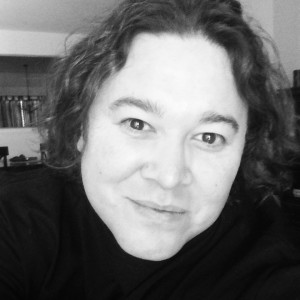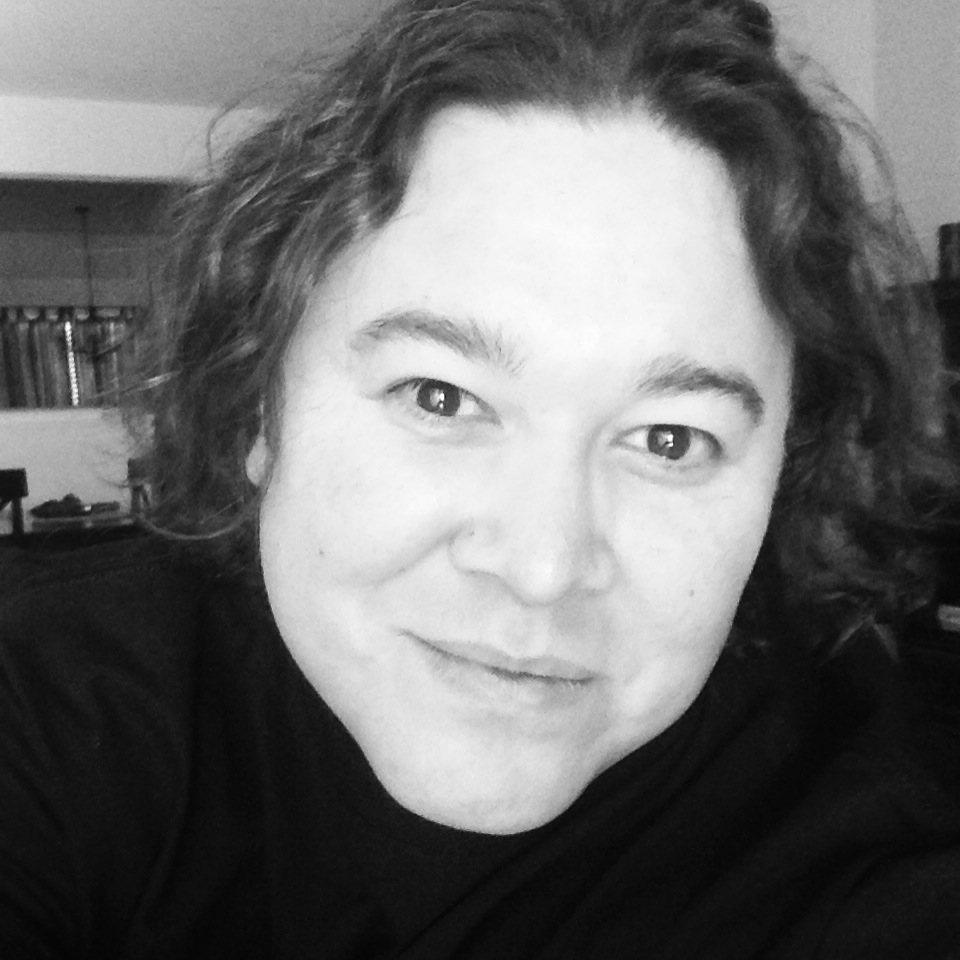What I Am – Vance Blackfox
 As a child and a youth, I was so sure of who I was. I did not have a name for it – for me, for “what I was;” but I did know that I was different. I was led to believe that I was a “fag” and a “queer” (and not the good kind of queer either).
As a child and a youth, I was so sure of who I was. I did not have a name for it – for me, for “what I was;” but I did know that I was different. I was led to believe that I was a “fag” and a “queer” (and not the good kind of queer either).
I remember from the earliest of my days feeling like boys were gross, and I certainly did not want to be doing what boys were doing. I felt strange having to do “manly” things. There was no inkling of want inside me; there was no desire in my heart to go hunting or to play baseball or football “like the other boys.” Nevertheless, I did.
It was what I was supposed to do. I mean, I was a boy after all, right? I had a penis and short hair, so that had to be the case. I was a boy. Hunting and the rougher sports were to be what I did, just like other boys in my community, in my Judeo-Christian, assimilated experience.
There was that, and then there was not that. The not that was the fact that I was drawn to everything that “belonged” to girls. I became a master of hiding this gravitational pull to the feminine, as it was surely an abomination for a “boy like me” to play with dolls and to fix my girl cousins’ hair. To have long hair myself. To only want to play basketball and not baseball and football as was expected of me by everyone in town – especially because I was pretty decent at playing both baseball and football. To play with easy bake ovens. To want to be homecoming queen like all the pretty girls in high school. The list of abominable desires goes on. As a child, I did not even know what the word abomination meant, but I certainly, and at a very young age, learned from our short-sighted, gender-binary-restricted, “western” Judeo-Christian culture what it looked like. Apparently, it looked like a “boy like me.”
“Boy like me.” I was certainly not that. Were my bestie Nicole and I the only ones who noticed other children and youths looking at me weird for a few moments before they inevitably asked me, “Are you a boy or a girl?” I feigned disgust (though it probably looked more like exasperation), yet I always felt a hint of satisfaction that I could be mistaken for a girl.
At this point, I will stop and say that many reading this may believe that my story, so far, sounds much like that of a person who is transgender or transsexual, or a gay boy or man who is attracted to the feminine – or maybe even a straight man whose parents raised him in a liberal, gender-open environment, letting him decide throughout his growth what was right for him. And it probably does sound like a story from folks who identify as such, though my gender and my identity are not any of these three designations.
As an indigenous person of what is now known as North America, I have another option. Well, it really isn’t an option, but it is a gender that explains more clearly for me, and others, what I am. I am Two Spirit.
In any conversation I have about my gender or sexuality, when the words “I am Two Spirit” come out of my mouth, the automatic response from others involved in the conversation are usually something like, “What is that?” “I have never heard of that before.” “Can you say more about that?”
I habitually feel the overwhelming responsibility to teach my colonizers, and others, once again “what I am.” I suppose I think it’s my responsibility because if I don’t do it, someone will inform them incorrectly about my gender. Indeed, it is very tempting now, at this moment, to go into teacher mode for you, but I will not this time. There are too many others who have written great resources about Two Spirit people.
What I will do is say that I am blessed to know exactly who I am, and for others to know “what I am.” I love that the Creator has chosen me to be something quite different than boy or girl, woman or man. I love that the Creator has chosen me to carry within my being a duality of spirits, making me male and female, possibly in equal parts but certainly more female than male at times, in spite of my penis and faith heritage. I love that the Creator has chosen me to understand my place in the circle, in my community, in relationship to my ancestors and elders. I love that my “role” and responsibility to the circle and all of my communities is not dictated for me by “western” expectations, but rather by a gift from the Creator, from God. I love that I am third gender. I love that I am Two Spirit.
As a Native person, I am just this Two Spirit person. There is no question that the Creator, that Unelanv, that God has made me exactly this, yet my Christian heritage has worked real hard to be an opponent of mine when it comes to my accepting myself as a Native person, much less as a Two Spirit person. It was my third gender siblings of antiquity that were first murdered by Christian explorers and colonizers because of the abomination title they gave third gender people. Sometimes I wonder: How might a “boy like me” escape my Christian heritage’s hate for me? Or, at the very least, how I might continue to love my Two Spirit self when so many others do not?
Vance Blackfox, Cherokee, citizen of the Cherokee Nation, is presently a ThM/PhD student at the Lutheran School of Theology at Chicago. In addition, Vance serves as the Director of Youth in Mission, a ministry of LSTC, providing leadership development experiences for high school youth throughout the year, utilizing cultural immersion, cross-cultural education, theological education, and social justice as the tools for enhancing the gifts of youth leaders. Vance is committed also to serving Native people and does so presently by serving on the board of directors for the Oaks Indian Mission (www.oaksindianmission.org), as founding member and co-convener of Cherokee Young Professionals, and as producer of the Vine Deloria Jr. Symposium at LSTC each fall.
In the past, Vance has served in a variety of leadership and servant capacities within the Evangelical Lutheran Church in America, to include youth ministry in congregations, with the Women of the ELCA, Augsburg Fortress Publishers, California Lutheran University, Oaks Indian Mission, and the Metropolitan Chicago Synod. Vance is a committed justice-seeker, educator, and story teller, using his gifts for the sake of the Creator’s church and society.

